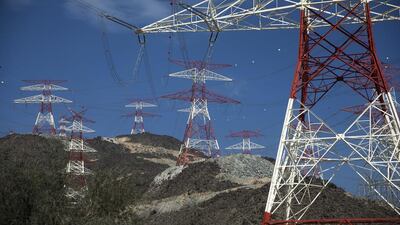The GCC-wide energy deal expected to be introduced early next year will do more than just provide a way to trade power, as needed, among the Gulf countries. As The National reported yesterday, when the deal is signed in January, it will also open the way for negotiations for closer collaboration in the energy sector and beyond.
The key part of the agreement is an innovative payment structure for electricity trading between the member states. This energy-for-energy system will help eliminate the effect of the varying subsidies, price calculations and electricity tariffs across the region. These stand in the way of efficient deals to share electricity generation. This scheme will also help address the region’s increasing consumption rates – between 6 and 10 per cent a year – and improve both connectivity and collaboration.
The energy sector is a good place to start if the ultimate goal is greater economic integration between the GCC countries. The Gulf Cooperation Council Countries Interconnection Grid (GCCIG) initiative linking the six countries, for example, is useful during emergencies. If it is made permanent, it will save countries more than $6 billion [Dh22bn] – the equivalent of an 8-gigawatt increase in capacity, according to Ahmed Al-Ebrahim, the chief operating officer at the GCC Interconnection Authority.
As the European Union has demonstrated, greater political unity between states helps with strong economic ties. And vice- versa. The economies across the Gulf region are relatively similar so they obviously provide limited options for economic exchange. But the energy sector – across the spectrum of traditional oil and gas, electricity and renewables – offers opportunities to come together.
For example, natural gas production is in short supply in all the GCC countries except for Qatar and Saudi Arabia, which means that collaboration would always be useful. The UAE, a leader in alternative power sources, including solar and nuclear, could help with those. It would be mutually beneficial, enormously profitable and strengthen the ties that bind us.

